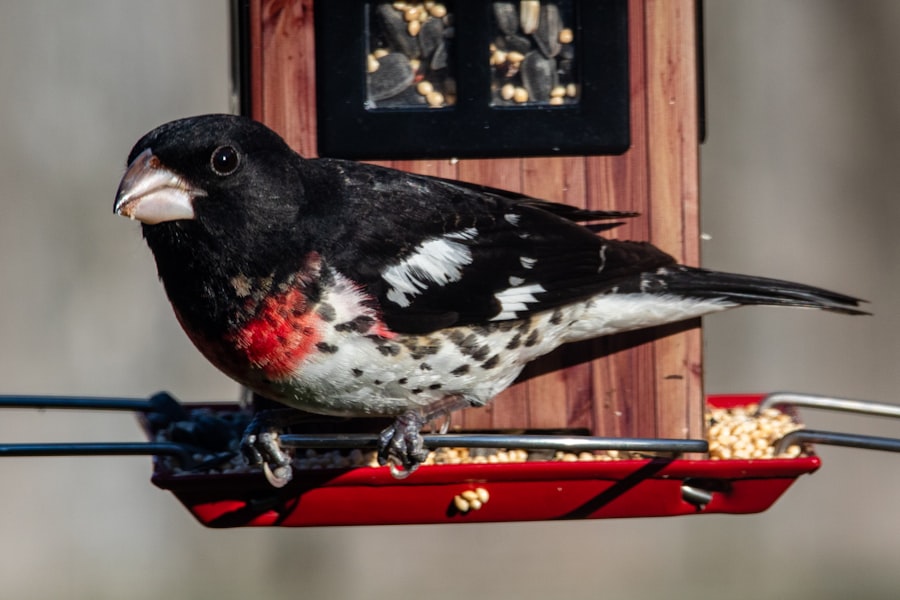Before raising backyard chickens, several factors should be considered:
1. Legal compliance: Check local zoning laws and homeowner’s association regulations to ensure chicken-keeping is permitted. 2. Space requirements: Chickens need a coop for shelter and a run for exercise. Ensure adequate space is available for both. 3. Time commitment: Daily care includes feeding, watering, and cleaning. Be prepared to dedicate time to these tasks. 4. Purpose: Determine the primary reason for raising chickens, such as egg production, pest control, or companionship. This will inform breed selection and setup. 5. Research: Familiarize yourself with basic chicken needs, including shelter, food, water, and space requirements. 6. Breed selection: Learn about different chicken breeds and their specific characteristics and needs. 7. Long-term commitment: Consider the ongoing responsibilities of chicken care and management. 8. Resources: Evaluate the necessary supplies and equipment needed for proper chicken care. 9. Expectations: Set realistic goals based on your research and understanding of chicken-keeping. By thoroughly assessing these factors, potential chicken owners can make informed decisions and prepare adequately for their backyard flock.
Table of Contents
- 1 Choosing the Right Chicken Breeds for Your Space
- 2 Creating a Safe and Cozy Coop
- 3 Feeding and Caring for Your Chickens
- 4 Managing Waste and Keeping a Clean Coop
- 5 Protecting Your Chickens from Predators
- 6 Enjoying the Benefits of Fresh Eggs and Sustainable Living
- 7 FAQs
- 7.1 What are the benefits of keeping backyard chickens?
- 7.2 What do backyard chickens need to thrive?
- 7.3 Are there any legal restrictions on keeping backyard chickens?
- 7.4 What are some common health issues for backyard chickens?
- 7.5 How can I protect my backyard chickens from predators?
- 7.6 What should I consider before getting backyard chickens?
Key Takeaways
- Backyard chickens can be a rewarding and sustainable addition to your home, providing fresh eggs and a connection to nature.
- Consider the space you have available when choosing chicken breeds, as some are better suited for smaller areas while others require more room to roam.
- A safe and cozy coop is essential for protecting your chickens from predators and providing them with a comfortable living space.
- Proper nutrition and care are important for keeping your chickens healthy and happy, so be sure to provide a balanced diet and regular check-ups.
- Managing waste and keeping a clean coop is crucial for preventing disease and maintaining a pleasant environment for both your chickens and yourself.
Choosing the Right Chicken Breeds for Your Space
Climate Considerations
The climate in your area is a crucial factor to consider. Some breeds are better suited to cold weather, while others thrive in warmer climates.
Purpose of Raising Chickens
The purpose of raising chickens is another important consideration. Are you primarily interested in egg production, meat production, or pest control? Different breeds have different strengths and characteristics, so it’s essential to choose breeds that align with your goals. If you’re primarily interested in egg production, look for breeds known for their high egg-laying capabilities. If pest control is a priority, consider breeds that are good foragers and insect hunters.
Space and Living Conditions
The space you have available for your chickens is also a vital consideration. Some breeds are more suited to confinement and do well in smaller spaces, while others require more room to roam and forage. By considering these factors, you can choose breeds that are well-suited to your specific space and needs.
Creating a Safe and Cozy Coop

A safe and cozy coop is essential for keeping your backyard chickens healthy and happy. When designing or choosing a coop, consider factors such as ventilation, insulation, and predator-proofing. Good ventilation is crucial for maintaining air quality and preventing moisture buildup, which can lead to respiratory issues in chickens.
Insulation is important for regulating temperature and keeping chickens comfortable in both hot and cold weather. Additionally, make sure the coop is secure from predators such as raccoons, foxes, and birds of prey. Use sturdy materials and hardware cloth to prevent unwanted visitors from getting inside.
Finally, provide plenty of roosting space and nesting boxes for your chickens to rest and lay eggs comfortably. Creating a safe and cozy coop is essential for the health and well-being of your backyard chickens. When designing or selecting a coop, it’s important to consider factors such as ventilation, insulation, and predator-proofing.
Good ventilation is crucial for maintaining air quality and preventing moisture buildup, which can lead to respiratory issues in chickens. Insulation is important for regulating temperature and keeping chickens comfortable in both hot and cold weather. Additionally, make sure the coop is secure from predators such as raccoons, foxes, and birds of prey.
Use sturdy materials and hardware cloth to prevent unwanted visitors from getting inside. Finally, provide plenty of roosting space and nesting boxes for your chickens to rest and lay eggs comfortably.
Feeding and Caring for Your Chickens
Proper feeding and care are essential for keeping your backyard chickens healthy and productive. Provide a balanced diet that includes a mix of commercial feed, grains, fruits, vegetables, and kitchen scraps. Make sure your chickens have access to clean water at all times, as dehydration can lead to health issues.
Additionally, regularly check for signs of illness or injury in your flock and seek veterinary care when needed. Keep the coop clean by regularly removing droppings and replacing bedding to prevent disease and parasites. Finally, spend time with your chickens to observe their behavior and build a bond with them.
Feeding and caring for your backyard chickens is an important aspect of raising a healthy and productive flock. It’s essential to provide a balanced diet that includes a mix of commercial feed, grains, fruits, vegetables, and kitchen scraps to ensure that your chickens receive all the necessary nutrients. Additionally, make sure your chickens have access to clean water at all times, as dehydration can lead to health issues.
Regularly check for signs of illness or injury in your flock and seek veterinary care when needed. Keep the coop clean by regularly removing droppings and replacing bedding to prevent disease and parasites from spreading. Finally, spend time with your chickens to observe their behavior and build a bond with them.
Managing Waste and Keeping a Clean Coop
Managing waste is an important part of maintaining a clean and healthy coop for your backyard chickens. Regularly remove droppings from the coop and run area to prevent the buildup of ammonia and bacteria. Consider using deep litter or composting methods to manage waste effectively while also providing insulation and natural heat for the coop.
Additionally, regularly clean and sanitize waterers and feeders to prevent contamination and disease transmission. By staying on top of waste management, you can create a clean and comfortable environment for your flock. Keeping a clean coop is essential for the health and well-being of your backyard chickens.
Managing waste effectively by regularly removing droppings from the coop and run area helps prevent the buildup of ammonia and bacteria that can lead to respiratory issues in chickens. Consider using deep litter or composting methods to manage waste effectively while also providing insulation and natural heat for the coop. Additionally, regularly clean and sanitize waterers and feeders to prevent contamination and disease transmission among your flock.
By staying on top of waste management, you can create a clean and comfortable environment for your chickens.
Protecting Your Chickens from Predators

Securing the Coop
Start by securing the coop with sturdy materials such as hardware cloth to prevent predators from gaining access. This will help prevent predators from getting inside the coop and harming your chickens.
Deterrents and Barriers
Additionally, install motion-activated lights or alarms to deter nocturnal predators such as raccoons or foxes. Consider using electric fencing or predator-proofing the run area to provide an extra layer of protection against ground-based predators.
Safe Free-Ranging
Finally, supervise free-ranging time or use chicken tractors to allow your flock access to fresh grass while keeping them safe from predators. This will give your chickens the freedom to roam while minimizing the risk of predation.
Enjoying the Benefits of Fresh Eggs and Sustainable Living
Raising backyard chickens comes with a host of benefits beyond just fresh eggs. Chickens can help control pests in your yard by eating insects and grubs while also providing natural fertilizer for your garden with their droppings. Additionally, they offer companionship and entertainment with their quirky behaviors and personalities.
By raising chickens at home, you can reduce your carbon footprint by producing your own food locally while also teaching valuable lessons about sustainability to future generations. Raising backyard chickens offers a multitude of benefits beyond just fresh eggs. Chickens can help control pests in your yard by eating insects and grubs while also providing natural fertilizer for your garden with their droppings.
Additionally, they offer companionship and entertainment with their quirky behaviors and personalities. By raising chickens at home, you can reduce your carbon footprint by producing your own food locally while also teaching valuable lessons about sustainability to future generations. Enjoying the benefits of fresh eggs and sustainable living is just one of the many rewards that come with raising backyard chickens.
If you’re interested in learning more about the breeding habits of ducks, you should check out this article on Poultry Wizard. It provides valuable information on when duck mating season occurs and what to expect during this time. This article is a great resource for anyone considering adding ducks to their backyard flock.
FAQs
What are the benefits of keeping backyard chickens?
Keeping backyard chickens can provide a sustainable source of fresh eggs, natural pest control for your garden, and a source of organic fertilizer for your plants.
What do backyard chickens need to thrive?
Backyard chickens need a secure coop or shelter to protect them from predators, access to fresh water and a balanced diet of chicken feed, as well as space to roam and scratch for insects and plants.
Are there any legal restrictions on keeping backyard chickens?
Laws and regulations regarding keeping backyard chickens vary by location. Some areas may have restrictions on the number of chickens allowed, coop placement, and noise ordinances. It’s important to check with local authorities before starting a backyard flock.
What are some common health issues for backyard chickens?
Common health issues for backyard chickens include parasites, respiratory infections, and egg-laying problems. Regular health checks, proper nutrition, and a clean living environment can help prevent these issues.
How can I protect my backyard chickens from predators?
To protect backyard chickens from predators, it’s important to secure the coop with sturdy fencing, lock the coop at night, and use predator-proofing measures such as burying wire mesh around the perimeter to prevent digging.
What should I consider before getting backyard chickens?
Before getting backyard chickens, consider the amount of space available, local regulations, the time and effort required for care and maintenance, and the commitment to providing a safe and healthy environment for the chickens.
Meet Walter, the feathered-friend fanatic of Florida! Nestled in the sunshine state, Walter struts through life with his feathered companions, clucking his way to happiness. With a coop that’s fancier than a five-star hotel, he’s the Don Juan of the chicken world. When he’s not teaching his hens to do the cha-cha, you’ll find him in a heated debate with his prized rooster, Sir Clucks-a-Lot. Walter’s poultry passion is no yolk; he’s the sunny-side-up guy you never knew you needed in your flock of friends!







